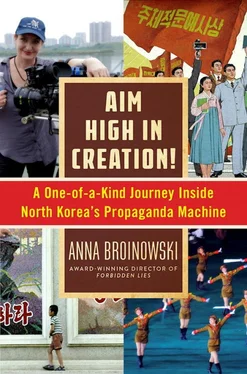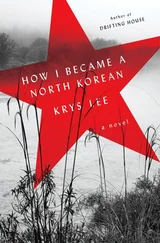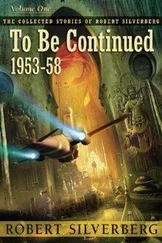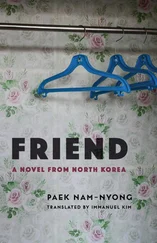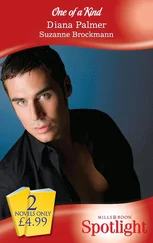A waitress brings out more bowls, and everyone immediately wipes their eyes, sits back down, and devours the contents in silence. “Cold noodles,” says Eun, solemnly. “Pyongyang naengmyeon : our national dish.” I peer inside my bowl. A twisted hunk of vermicelli sits in grey water, surrounded by faded vegetables and what may be a boiled egg. Droplets of grease glimmer on the icy broth. Everyone turns to me, and I realise I’ve hit that moment every traveler dreads—the one where you eat a live monkey’s brain, or drink freshly masticated cassava, to belong. Lizzette dresses her noodles with mustard in stoic silence, and I follow suit. Then I shakily lift up the noodles with cold steel chopsticks, shut my eyes, and slurp.
An explosion of salty, sweet, spicy, and sour fills my mouth. It’s delicious. I look at Pak, astonished. He grins complacently, as if to say: Of course it’s delicious. What were you worried about? Then Ri charges our soju glasses for the fifteenth time and pushes his bowl aside: “So an American, a Frenchman, and a Russian are on a plane,” he slurs. The filmmakers chuckle: Ri has wheeled this one out before. “The plane crashes on an island. The natives want to eat the foreigners. But they plead for their lives.” Lizzette and I smile, a little unsettled. Is this some kind of North Korean tourism metaphor?
Ri puffs out his chest: “‘All right,’ says the chief, ‘we won’t eat you, on one condition. You must name one thing we do not know.’ The Yankee goes first: ‘I bet you don’t know what TV is.’ The chief answers: ‘Of course we do. It is a box with pictures and sound, that tells you stories.’ SPLASH! The Yank is thrown in a huge pot and boiled for supper.”
The filmmakers cheer, delighted: that’s one very dead American. Lizzette and I nod gamely, playing along. “The Frenchman goes next,” continues Ri. “‘I bet you don’t know what wine is,’ he says. The chief laughs. ‘That’s easy. It’s a beverage made from fermented grapes, and when you drink it, it makes you sing with joy.’ SPLASH! The Frenchman lands in the pot.” The filmmakers think this is hilarious. They toast Ri and gulp down more soju . Ri leans forward: “Last, it’s the Russian’s turn.” He frowns drunkenly under his eyebrows, doing a passable Boris Yeltsin: “‘Do you know what a Soviet Central Party Sub-Committee Meeting is?’ the Russian asks. The cannibals scratch their heads. ‘That’s too hard to explain to anybody,’ says the chief. And the Russian goes free!”
I pinch myself. Did I just hear a plastered North Korean man in a singlet tell an anti-Soviet joke in the middle of Pyongyang? Around me, everyone has cracked up, and it’s clear that I did. Well, if they’re breaking taboos, I’ll break one too, I decide—and pull out a pack of Benson & Hedges. It’s a habit I fell back on when my marriage collapsed, and I swore I wouldn’t do it in front of the North Koreans. But my nerves are shot, and every man at the table has been chain-smoking since we sat down. I’ll show them a female director can party with the best of them.
I rummage in my bag for a lighter—but Pak beats me to it. He flicks open an old brass Zippo and whispers in my ear: “Women are like cigarette smoke: when you try to stroke them, they disappear.” I realise with a shock that he’s flirting with me—in Japanese. I glance at the Man in Black, but he’s eating his noodles. If he can hear us, he’s not letting on. Pak continues happily, in the forbidden language of the hated enemy: “Do you miss your family?”
I wince before I can stop myself. I miss them both. But only one of them is family now. I wonder if my daughter is coping without me, and how she is getting on with her daddy’s athletic, and singularly unmaternal, girlfriend. “It’s always hard, going away,” I say, hoping Pak doesn’t notice my pain.
He studies me closely, his skin moist in the heat. His voice is soft with concern: “Making films is like climbing a mountain, Anna. You must look after your legs. If you cannot put one foot in front of the other, you cannot direct.” I nod and exhale, wondering if I’ve translated him correctly. I’ve been told many things about directing over the years—but looking after your legs isn’t one of them. “Thank you,” I say, and mean it.
The table erupts with laughter at another of Ri’s jokes—something about David Beckham and the South Korean president. It’s clear who’s just landed in the cannibals’ pot. Pak stretches back lazily, placing his arm behind my shoulders with practised ease: “Eiga no kazoku wa eiga no kazoku desu yo, doko demo,” he says. “Filmmakers are family. Wherever you are.” I look at the laughing faces, and I know that he’s right. This could be a post-shoot party anywhere in the world. I can feel Pak’s hand, millimetres from my skin: “To the world we want to say that we love nature, and we love humanity. People who make these kinds of films are one big family.”
I look into Pak’s eyes and feel a shiver of recognition. He’s giving me a message. He wants me to take it back out and share it with the world. We are all family . Pak holds my gaze, making sure I understand. Then he buries his face in his noodles and drinks up the last drops of broth.
I’M ON THE PROWL—BUT NOT FOR eligible men. There aren’t any. So far, I’ve met a Swiss prospector, a Chinese developer, and a Canadian missionary. They all wore wedding rings, so I’m keeping my virtue intact and prowling for information instead. After twenty-four hours of total isolation from the outside world, I’m hungry for answers. The Swiss man, who is here to explore the northern mountains for the minerals used in mobile phones, was really quite cute. In the eighteen-minute ride down to the lobby, he gave me a useful tip: if I want to know just how closely we’re all being watched, I should go to Floor Five.
I peer through the doors of Restaurant Number One, where Nick, Lizzette, and Ms. K are eating cucumber salad for breakfast. The restaurant is white and stark, as brightly lit as a TV studio. Maybe it is a studio, feeding images back to Floor Five from a camera hidden in the chandelier. Certainly, Nick is keeping the conversation weather-related. I decide to pass on breakfast and head for the lobby.
Simon Sheen the turtle knows I’m up to something. He gives me a loaded look as I slip past the bellboys and head for the entrance to Floor Five. Ms. K and Eun are living there until we leave, a fact I discovered last night when we said our goodbyes. As we got in the elevator, they disappeared behind a large potted plant—and up a hidden staircase. Ms. K was drunk and did not look like she was about to do after-hours surveillance.
But this is North Korea: in 2009, it imprisoned American documentary makers Euna Lee and Laura Ling, accusing them of sneaking over the Chinese border to “conduct a smear campaign.” In 2010, Korean-American businessman “Eddie” Jun Yong-Su was arrested for committing a “grave” but undisclosed crime; two years later, Christian missionary Kenneth Bae was charged with plotting “to overthrow the government” and sentenced to fifteen years, hard labor. More recently, officials arrested an eighty-five-year-old US war veteran, Merrill Newman, on his Air Koryo flight, minutes before it left for for Beijing. The sightseeing trip Newman had just enjoyed down memory lane became a two-month ordeal, during which he was held by armed guards and interrogated. Newman’s captors only released him when he read out a hand-written confession on national TV, apologizing for the “US invasion” and Korean war.
I duck behind the potted plant and start up the stairs. It is pitch black: the hotel obviously reserves its electricity for guests. I know I’m putting our project in jeopardy. But I feel a heavy responsibility: my documentary, if I am allowed to make it, will be seen around the world. I need to know exactly where the truth sits between the gulag state of the newsfeeds and the bizarrely functional society I’ve seen so far. If we really are being surveyed 24/7, and Pyongyang is hiding suburbs of starving people, the North Koreans are better at deception than I would have guessed.
Читать дальше
